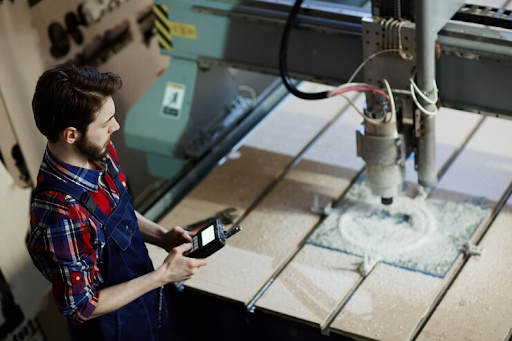What is Swiss Machining And Its Benefits?
In an era where precision and efficiency are important, the manufacturing industry is undergoing a significant transformation, primarily due to the widespread adoption of Swiss machining.
This cutting-edge manufacturing technique is known for its exacting precision. It has rapidly become popular in industries where complex parts must be produced in large quantities.
Swiss machining, a 19th-century technique combining 19th-century ingenuity with modern CNC technology, is increasingly being utilized in industries like automotive and aerospace for precise specifications. The machine’s ability to support the workpiece ensures precision, while its versatility in handling multiple operations simultaneously eliminates the need for secondary processing. It is impossible to overestimate the significant influence Swiss machining has had on manufacturing.
Scroll down to learn more about this machine.
What is Swiss Machining?
Swiss machining is a manufacturing method that uses specialized tool-cutting machines to transform metal stock into the required part. This machine is utilized to produce small parts with extremely precise tolerances.
The initial Swiss machines were traditional, lacking a computer control centre. But now there’s a CNC machine that was designed in Switzerland. As a result, some refer to its application in the CNC sector as “Swiss CNC machining.”
Advantages of Swiss Machining
When you decide to invest in swiss machine shop or use, it is important to learn its benefits.
Here are the standout benefits of this machining method.
High precision machining
Swiss machining techniques are more precise than traditional lathes. This machine can work on up to five axes, whereas other lathes typically have up to three. Since it has more axes, it can perform precision machining tasks. Swiss machines have tolerances of up to 0.0002 inches.
High repeatability
Swiss precision machining is known for its consistent performance. These fascinating machines have remarkable reproducibility and generate high-quality components. This is an essential quality for businesses where even the smallest units count.
Complex parts production
Swiss machining technology is reliable for manufacturing intricate parts to the smallest details. This machining technology excels in producing complex geometries, a task that alternative operations may struggle with.
Simultaneous Operations on the Swiss Machine
The Swiss machine is still evolving. Many tool spindles are included with modern Swiss CNC lathes. Because of these characteristics, these lathes can execute multiple tasks at once.
It might involve drilling a block on one spindle and spinning a shaft on the other. Cycle time is decreased by having this capacity. Compared to conventional lathes, it might save machine shops a significant amount of time and money.
Fewer secondary operations
Swiss machine operations are distinguished by their minimal or non-existent need for secondary operations. For this reason,the technology has tight tolerances coupled with unmatched precision.
Higher RPMs
Another feature is the Swiss machine’s capacity to operate at comparatively high revolutions per minute (RPMs). Despite those high RPMs, it doesn’t vibrate. As a result, these machine items have the finest surface polish. This type of machining method also has faster manufacturing times.
Swiss Lathe Automation
The combination of automation advancements and Swiss lathe capabilities is excellent. Swiss CNC machining works well with various operations, increased stability, reduced lead times, and many other qualities that combine with automation.


